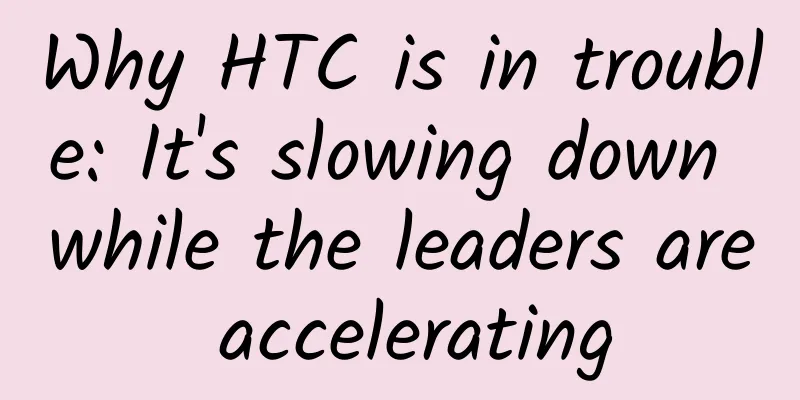Is purified water not suitable for long-term drinking? See what experts say

|
Rumor: "Long-term drinking of purified water will definitely cause problems?" Some people on the Internet claim that drinking purified water for a long time "will definitely cause problems." There are rumors that this is because purified water does not contain minerals, which will cause the loss of minerals in the human body, which has caused confusion among the majority of netizens. Rumor analysis: This statement is unfounded. The main source of minerals for the human body is daily diet. Whether or not to drink purified water has a relatively small impact on mineral intake, especially for people with a balanced diet, this impact is almost negligible. As long as the drinking water meets the standards, it is fine to drink it daily. Water is the basis of life and is vital to the human body. The topic of drinking water always triggers heated discussions. "It is better to drink purified water, which is pure and free of impurities", "It is better to drink mineral water because it can supplement a large amount of minerals", "Drinking purified water for a long time will have an impact on the human body". There is also a view that there is no difference between various daily drinking water - mineral water, boiled water, and purified water are just for replenishing water, so don't expect water to replenish nutrition. Who is right? Of course, it is the sentence highlighted in the previous line - as for why, let's talk about it in detail below. Should we drink purified water or mineral water? (Source: AI generated by the author) What are the differences between purified water, mineral water and boiled water? Let's first look at the differences between several types of water: Purified water is water produced by distillation, reverse osmosis or deionization technology, which is deeply purified and contains almost no minerals, impurities or microorganisms. It is mainly composed of water molecules, and the total dissolved solids (TDS, which represents the total amount of minerals and other dissolved substances in water) are extremely low, usually in the range of 1-10 ppm (parts per million). Mineral water comes from mineral water sources deep underground and is rich in natural minerals and trace elements such as calcium, magnesium, potassium and sodium, which vary depending on the geological conditions of the water source. The total dissolved solids (TDS) in mineral water is usually high, ranging from tens to hundreds of ppm, and some mineral waters may also contain components such as carbonates or sulfates. Boiled water is water obtained by boiling tap water and then cooling it naturally. It is a form of drinking water. The boiling process can kill microorganisms in the water, such as bacteria and viruses, but will not significantly change its mineral composition. Therefore, the mineral content of boiled water is closely related to the composition of the water source, and may contain natural minerals such as calcium and magnesium as well as trace metals dissolved in the water pipes and during the boiling process. The mineral content of boiled water is closely related to the composition of the water source (Source: AI generated by the author) Are the minerals in mineral water not important to human weight? Mineral water contains a variety of natural minerals, such as calcium, magnesium, sodium and bicarbonate, which are essential for human health. For example, calcium and magnesium contribute to bone health and regulate muscle and nerve function, while potassium and sodium maintain the electrolyte balance of fluid inside and outside cells. Research suggests that drinking mineral water rich in calcium and magnesium may help meet the body's needs for these minerals, especially if they are not adequately consumed in the diet. However, drinking water is not the main source of minerals, and a balanced diet remains key to obtaining essential minerals. The World Health Organization (WHO) points out that the mineral content of drinking water is generally low and its contribution to overall mineral intake is limited. Drinking water contributes only a limited amount to mineral intake (Source: AI generated by the author) Therefore, relying on mineral water to meet mineral needs is not the best strategy. In addition, the mineral content in mineral water varies depending on the source of the water. Some mineral waters may contain high sodium, so people who need to control sodium intake should choose carefully. For example, some brands of mineral water contain more than 400 micrograms of calcium, more than 50 micrograms of magnesium, more than 35 micrograms of potassium, and more than 80 micrograms of sodium per 100 ml. The minerals in mineral water may have certain benefits for human health, but their contribution is relatively limited. A balanced diet is still the main source of essential minerals. When choosing drinking water, you should consider the mineral content in the water based on your personal health status and mineral needs, and make a choice that suits you. Isn’t it better to replenish minerals by drinking two bottles of mineral water than by drinking a sip of milk? According to the "Chinese Residents' Dietary Nutrient Reference Intake (2023 Edition)" issued by the Chinese Nutrition Society, the recommended daily calcium intake for adults is 800 mg. This standard applies to men and women aged 18 and above. Next, let's do a simple calculation. An adult needs to consume 3 liters of water every day, of which about 80% comes from drinking water or beverages, and the remaining 20% comes from food. The calcium content of a common brand of mineral water is greater than 400 micrograms per 100 milliliters, which means that the calcium content of a bottle of ordinary mineral water is about 2 milligrams. If an adult drinks this kind of mineral water for a day, they will only take in about 10 mg of calcium from the mineral water, which is far from enough compared to the daily recommended calcium intake. After all, calcium intake should be obtained mainly through a balanced diet, such as calcium-rich foods including milk and dairy products, beans and bean products, dark green leafy vegetables and certain aquatic products. We all know that milk can supplement calcium. Even without considering the absorption efficiency, every 100 grams of fresh milk contains about 100-120 mg of calcium. Compared with the mere 10 mg of calcium in two bottles of mineral water, it is true that two bottles of mineral water are not as good as a sip of milk in terms of calcium supplementation. Drinking milk can provide more calcium (Source: AI generated by the author) Will drinking purified water for a long time cause problems? The impact is negligible Purified water has been deeply purified to remove almost all minerals in the water, such as trace elements such as calcium, magnesium, and potassium. Therefore, some people believe that long-term drinking of purified water lacking minerals may lead to insufficient mineral intake, thus affecting bones, cardiovascular system, and electrolyte balance. This is especially true for people whose diet itself does not have enough minerals. However, this view is also untenable. Fruits, vegetables, dairy products, grains and meats supplement minerals (Source: AI generated by the author) As we have mentioned before, drinking water is far from enough to get the minerals needed by the human body. The mineral content in drinking water is negligible compared to diet. The main source of minerals for the human body is through daily diet, including rich foods such as fruits, vegetables, dairy products, grains and meat. Therefore, whether or not to drink purified water has little effect on mineral intake, especially for people with a balanced diet, this effect is almost negligible. In fact, rather than arguing about what kind of water is the "correct" to drink, it is much more important to develop correct water drinking habits. Here is a table for your reference to scientifically dispel rumors. 8 tips for daily drinking water Drink enough water every day, adjusting according to climate, activity level or health status. Drink water in small amounts and frequently instead of drinking large amounts at once to avoid burdening your body. Choose safe water sources, such as boiled water, purified water or mineral water, and avoid drinking raw water. · As long as it is qualified drinking water, you can drink whatever you like without worrying about it. Drink water promptly during and after exercise. If you sweat a lot, you can choose drinks containing electrolytes. Don’t wait until you are thirsty to drink water, take the initiative to replenish water to maintain body balance. Choose warm or room temperature water when drinking, and avoid overscalding. Eat more water-rich foods, such as fruits and vegetables, to replenish water and nutrients. In summary, we need to be rational about the choice of drinking water. Whether it is pure water or mineral water, its essence is to meet the body's water needs, not the main source of nutrition. Drinking water and diet have different focuses: drinking water properly is essential to maintaining health; while minerals and other nutrients mainly depend on a balanced diet. Instead of arguing about which water is healthier, it is better to develop a healthy habit of drinking water. Looking in the mirror of rumors It is natural for people to want to eat and drink healthier. Many rumors will take advantage of this and exaggerate the importance of certain nutrients, causing us to distrust or even panic about our current diet. For example, this rumor will unilaterally emphasize or even exaggerate the importance of minerals in drinking water, causing us to ignore that the main way for the human body to obtain minerals is through a balanced diet. In this regard, we only need to check the nutrient content and a simple calculation will make us suddenly realize it. Author: Denovo Popular Science Writer Review | Ruan Guangfeng, Deputy Director of Kexin Food and Health Information Exchange Center |
>>: Should you wear socks when sleeping? You may not think of these benefits
Recommend
B2B marketing integrated into the brand will achieve twice the result with half the effort!
I recently saw a set of data published in the &qu...
Apple is stealing money again: AirPods headphone battery replacement costs more than 1/4 of the total price
Recently, Apple officially released its own wirel...
B2B community operation skills!
Most B2Bs are either still struggling with whethe...
A week-long in-depth experience with Xiaomi MIX: What is it like to use?
Since the first generation of Xiaomi mobile phone...
Want to operate an e-commerce platform? Let’s understand these first
% ignore_pre_1 % Recently, some friends have been ...
50 tricks of cross-border marketing
No matter how the market environment changes, cro...
Information flow advertising: A guide to optimizing landing pages in the machinery industry!
How can the food machinery industry reduce the ve...
5 rules for private domain traffic community marketing operations in 2020!
Communities are a form of organization for "...
Many places use paper health certificates instead of health codes. How to issue a paper health certificate?
Many places use paper health certificates instead...
Qualcomm test proves: Yes, drones can be controlled with 4G signals
The drone craze has swept the world. Although the...
How to increase and maintain community activity?
The various communities we see are very lively, b...
Is Google's return to China a pipe dream or a comeback?
On October 20, American Internet giant Google ann...
4 Steps to Solve Advertising Difficulties, Analysis of Advertising Strategies in the Wedding Photography Industry
Target: A national wedding photography chain clie...
Why is the champion single product "leek box" so delicious~~
Audit expert: Wang Guoyi Postdoctoral fellow in N...
How effective is 58.com’s promotion? Doing this will get you more resources!
As the Internet has developed to this day. Many t...









